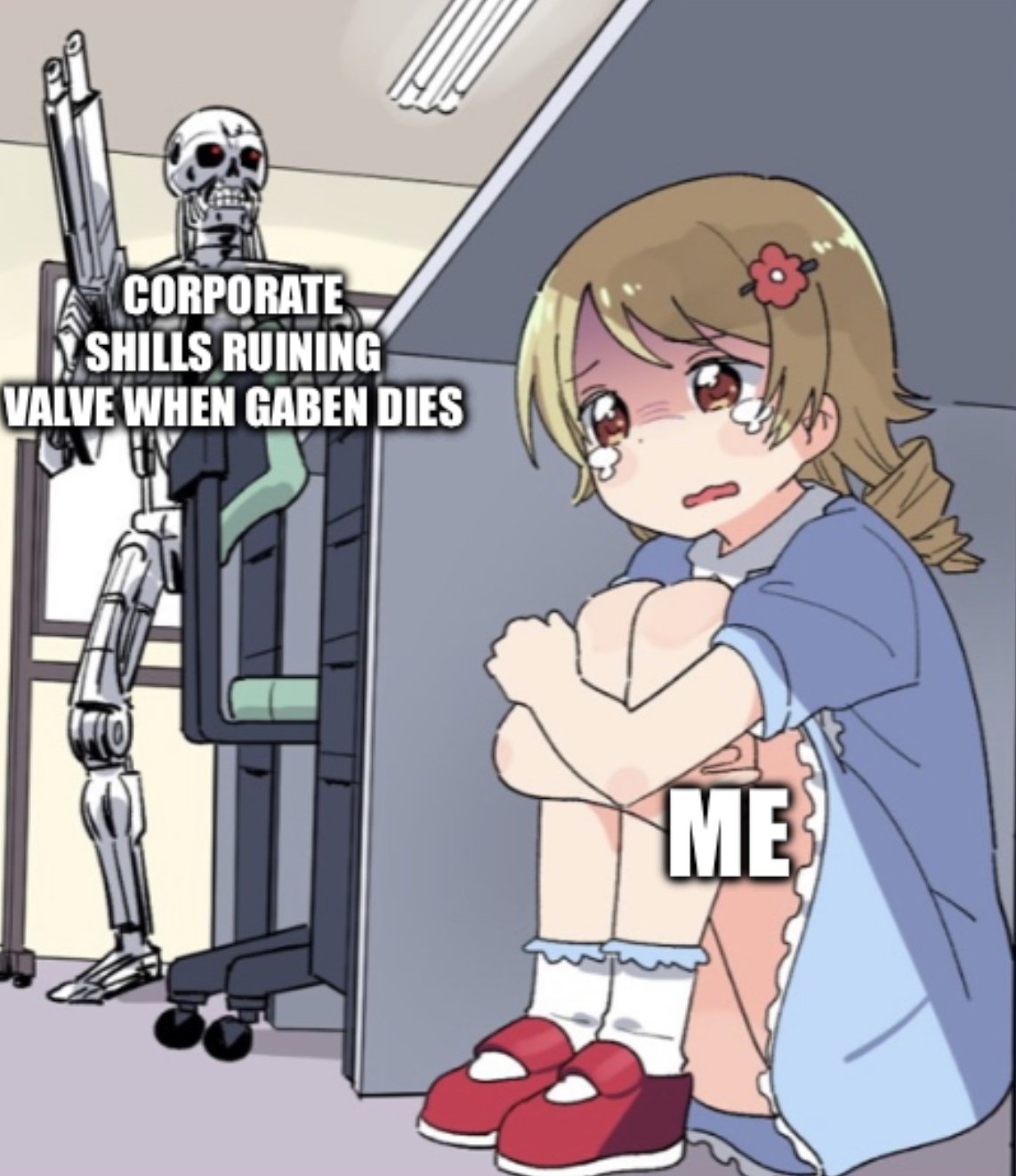this post was submitted on 04 Jan 2024
1249 points (97.6% liked)
Memes
45727 readers
792 users here now
Rules:
- Be civil and nice.
- Try not to excessively repost, as a rule of thumb, wait at least 2 months to do it if you have to.
founded 5 years ago
MODERATORS
you are viewing a single comment's thread
view the rest of the comments
view the rest of the comments

Yesterday I bought something on Steam for the first time in many years. (I have a large Steam library, but in recent years I've been getting games from gog and itch instead.)
Since I hadn't bought from Steam in a long time I figured I should read the "Steam Subscriber agreement" that you have to click to accept when you buy something. Let me just say now, the agreement is a very very bad deal for customers.
It goes to great lengths to make it very clear that you don't own anything. You aren't buying anything, you have no essentially rights. You are simply paying for a license subscription to use software with various conditions. Valve is able to end your subscription with no refund if you break the agreement. And the best bit:
So by using Steam we're putting a lot of trust in Valve; because the 'agreement' basically says they can do whatever they want, any time they want, for any reason they want.
Steam is quite good. I particularly appreciate their Linux support. But they are clearly using their position of dominance to make people agree to unfavourable terms. At the moment, things are fine. But make no mistake - when you use Steam, Valve has all the power. They can screw people over whenever they choose to.
With all that in mind, buying DRM free is better if you want to still have access to the software when a company decides to change direction for whatever reason.
Apparently you like to read. Open the EULA for basically any commercial software (not FOSS or open source, costs money, isn't made by some small company, basically the same criteria as >90% of the games on Steam) and you are going to learn 2 things very quickly. First, all of them are just a license to use, and second, if there are patches or an online component you will have at least as many caveats and restrictions as what is included in the Steam TOS.
Now, I'm not saying you're wrong or that I'm okay with this situation (I look for open source, free, then paid for all the software that lets me do whatever it is I'm trying to do), but the situation with Steam is very typical.
Terms like that matters more for some services than for others. For something like Spotify or Netflix, if they terminate the agreement it doesn't matter much. You lose access, but there was no accumulated value. So you can just go somewhere with only minor inconvenience. Whereas on Steam, if they terminate the agreement then you could lose decades worth of accumulated games from your library - which could be very valuable. So that's a big difference.
Now, it's unlikely that Steam will just press delete on everyone's account. But we can imagine a very profit-hungry leader taking over Steam and deciding to put the squeeze on their vast user-base. There are many things they could do; such as adding ads, requiring 'consent' to include spyware on your computer, or charging additional fees. Long term users would not be in a position to refuse these things, because their Steam library is being held as collateral.
If you trust that Steam is never going to give you up, and never going to let you down, etc. Then there is no problem. Things are currently going fine, and they may continue to be fine for a very long time. It's just a matter of trust, and power, and hedging.
The thing here is, people will talk and if there are any serious issues, a lot of people, myself included, will have no moral objection to pirating the games they already paid for access to. And in some jurisdictions, it won't even be illegal. Like with most enshittification situations, it isn't going to be there one day and gone the next, so liberating your games won't be overly difficult.
The big gotcha will be online multi-player games. If you don't have a server, the client doesn't matter.